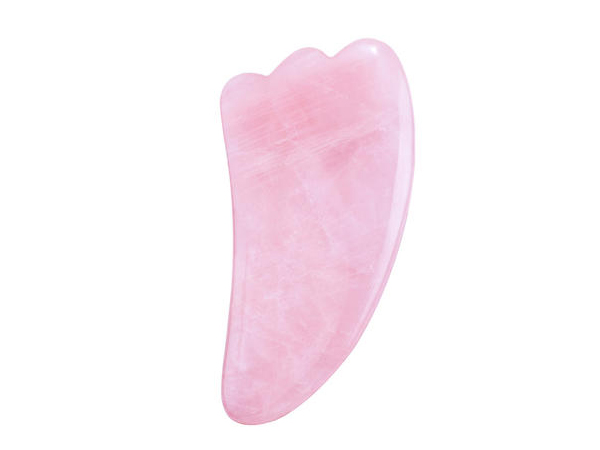Using the right coolant is crucial for ensuring optimal performance and longevity of the engine. However, there may be instances where you find yourself wondering if it’s possible to mix different types of coolant, such as G12 Evo and G13. In this blog post, we will delve into the world of coolant compatibility and explore whether mixing G12 Evo and G13 coolant is a viable option.
Understanding G12 Evo Coolant:
G12 Evo coolant, also known as G12++, is a type of coolant that is commonly used in various vehicle models, particularly those from specific manufacturers.
It is formulated with a combination of organic acids and additives designed to provide excellent protection against corrosion, cavitation, and freezing.
G12 Evo coolant is typically recommended for vehicles from manufacturers such as Volkswagen, Audi, Seat, and Skoda.
Understanding G13 Coolant:
G13 coolant, also referred to as G13++, is another type of coolant that offers advanced properties and improved performance compared to its predecessors.
Like G12 Evo coolant, G13 coolant is a hybrid organic acid technology (HOAT) coolant, but it may contain different additives and inhibitors.
G13 coolant is commonly used in newer vehicle models from manufacturers like Volkswagen, Audi, Porsche, Bentley, and Lamborghini.
Can G12 Evo and G13 Coolant Be Mixed?
G12 Evo and G13 coolants are often compatible with each other, thanks to their similar organic acid technology (OAT) base.
However, it is important to note that while they may be compatible, it is generally recommended to avoid mixing different coolants unless it is explicitly specified by the manufacturer.
Mixing coolants can potentially lead to unpredictable chemical reactions and compromise the overall effectiveness of the coolant’s protective properties.
Consequences of Mixing G12 Evo and G13 Coolant:
Mixing G12 Evo and G13 coolant can result in the formation of precipitates or sludge, which can clog the cooling system and reduce its efficiency.
The coolant’s ability to prevent corrosion and cavitation may also be compromised, leading to potential damage to vital engine components.
It is important to understand that mixing the two coolants may void any warranty or service agreements provided by the vehicle manufacturer.
Best Practices for Coolant Selection:
It is always recommended to follow the guidelines provided by your vehicle’s manufacturer regarding coolant selection.
Check the owner’s manual or consult with a professional mechanic to determine the specific coolant type recommended for your vehicle.
By using the correct coolant, you can ensure that your vehicle’s cooling system remains in optimal condition, providing efficient heat dissipation and protection against corrosion.
FAQs:
Q1: Can I mix G12 Evo and G13 coolant if I can’t find the specific coolant recommended for my vehicle?
A: It is generally recommended to avoid mixing different types of coolant unless specified by the manufacturer. If you can’t find the specific coolant recommended for your vehicle, it’s best to consult with a professional mechanic or contact the manufacturer for guidance on suitable alternatives.
Q2: What happens if I accidentally mix G12 Evo and G13 coolant?
A: Mixing G12 Evo and G13 coolant may result in the formation of precipitates or sludge, which can clog the cooling system and reduce its efficiency. It may also compromise the coolant’s ability to protect against corrosion and cavitation, potentially leading to damage to engine components.
Q3: Will mixing G12 Evo and G13 coolant void my vehicle’s warranty?
A: Mixing coolants that are not recommended by the manufacturer may void your vehicle’s warranty or service agreements. It’s important to follow the guidelines provided by the manufacturer to ensure compliance and avoid any warranty-related issues.
Q4: Can I dilute G12 Evo or G13 coolant with water?
A: It’s generally recommended to use a coolant/water ratio specified by the manufacturer. Diluting coolant with water can affect its performance and protective properties. Follow the instructions provided by the coolant manufacturer or consult your vehicle’s manual for the correct coolant-to-water ratio.
Q5: Are there any situations where mixing G12 Evo and G13 coolant is acceptable?
A: While it is generally advised to avoid mixing different types of coolant, there may be specific instances where the manufacturer explicitly allows mixing or provides compatible coolant options. In such cases, it is essential to follow the manufacturer’s recommendations to ensure compatibility and optimal performance.
Q6: How can I flush my cooling system if I accidentally mix G12 Evo and G13 coolant?
A: If you accidentally mix G12 Evo and G13 coolant, it is recommended to have your cooling system flushed by a professional mechanic. Flushing involves draining the coolant, thoroughly cleaning the system, and refilling it with the correct coolant as per the manufacturer’s recommendations.
Q7: Can I use universal coolant as a substitute for G12 Evo or G13 coolant?
A: Universal coolants are designed to be compatible with a wide range of vehicles and coolant types. However, it is still advisable to consult with a professional mechanic or refer to your vehicle’s manual for the recommended coolant type. Using a universal coolant as a substitute may not provide the same level of protection and performance as the specific coolant recommended by the manufacturer.
Conclusion:
while G12 Evo and G13 coolants may share similarities in their organic acid technology, it is generally advisable to avoid mixing them unless explicitly specified by the manufacturer. Mixing these coolants can lead to undesirable consequences such as sludge formation, reduced cooling system efficiency, and potential damage to engine components. To maintain the longevity and performance of your vehicle, it is crucial to adhere to the manufacturer’s recommendations and use the appropriate coolant. When in doubt, consult with a professional mechanic or refer to your vehicle’s manual for guidance. Taking these precautions will ensure that your vehicle’s cooling system remains reliable, keeping your engine running smoothly for years to come.



